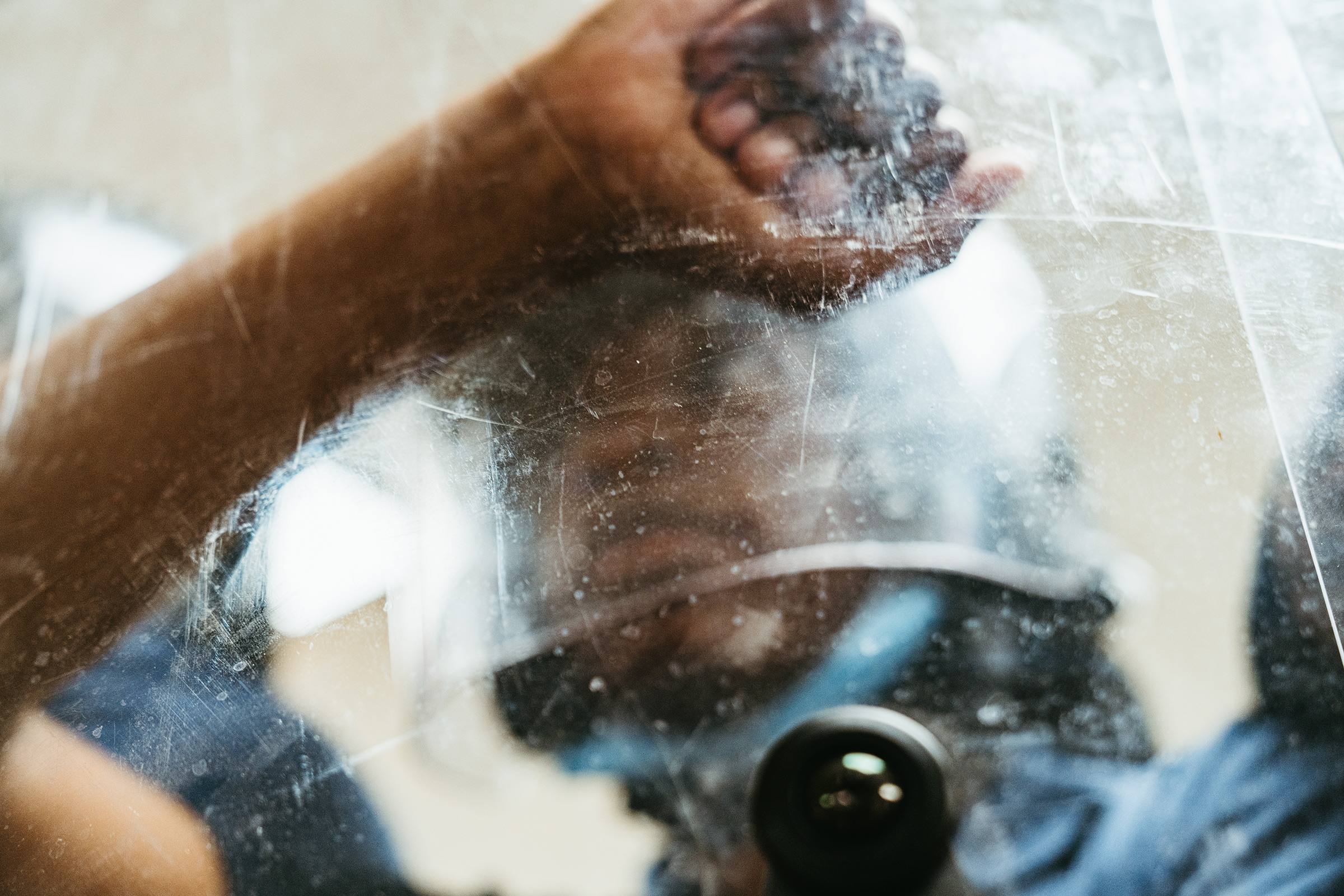When Tyrese Davis got accepted into Lincoln University’s police academy, the first of its kind at a historically Black college or university, his instinct was to keep it a secret.
Davis, 22, prides himself on being the first man in his family to go to college, so the acceptance on Jan. 6 was monumental. It meant he was one step closer to building a future for himself amid the economic tumult of the pandemic. But it came after months of civil unrest following the death of George Floyd in policy custody, and on the very day insurrectionists stormed the U.S. Capitol, where police would turn out to have been on both sides of the law.
As a Black man from Baltimore, where anger over Freddie Gray’s 2015 death while under arrest remains raw, Davis worried about backlash from his community. “I didn’t want to let it be known that I was joining a law-enforcement academy,” he says. “I didn’t want to be frowned upon.”
So on Jan. 19, when the academy opened in Jefferson City, Mo., where Davis lives on campus, he didn’t share the news with his hometown friends, even though he was making history as part of the first police class at an HBCU. But more than a week later, when he learned that authorities in Rochester, N.Y., had handcuffed and pepper-sprayed a 9-year-old Black girl—the latest in a string of high-profile use-of-force incidents—Davis got fed up with hiding his dreams from friends and began posting photos of himself on Facebook wearing body armor and training at the gun range.
Read more: Society Is Paying the Price for America’s Outdated Police Training Methods
“It’s my career, not their career,” he says. “I want them to realize that I’m going to make a change. That’s what we need right now.”
Research suggests he’s right. Throughout history, police forces in the U.S. have been predominantly white and male. In 2016, the most recent year for which data is available, about 72% of local police officers were white and nearly 88% were male, according to the Bureau of Justice Statistics (BJS). About 64% were both white and male, and about 11% were Black—a profile largely unchanged since 1997. A new study published in February in the journal Science found that Hispanic and Black officers use force less frequently than white officers, especially against Black people, evidence that diversity can improve police treatment of communities of color.
But nearly a year into the uprising against police brutality and systemic racism, it’s harder than ever for police departments to recruit and retain officers, particularly those of color. Nationwide, fewer people are applying for the job, and more experienced cops are retiring or quitting in droves, threatening public safety as major cities witness crime spikes.
“People are just resigning because they’ve had enough,” says West Lafayette police chief Troy Harris in Indiana. “There’s a cloud over law enforcement.”
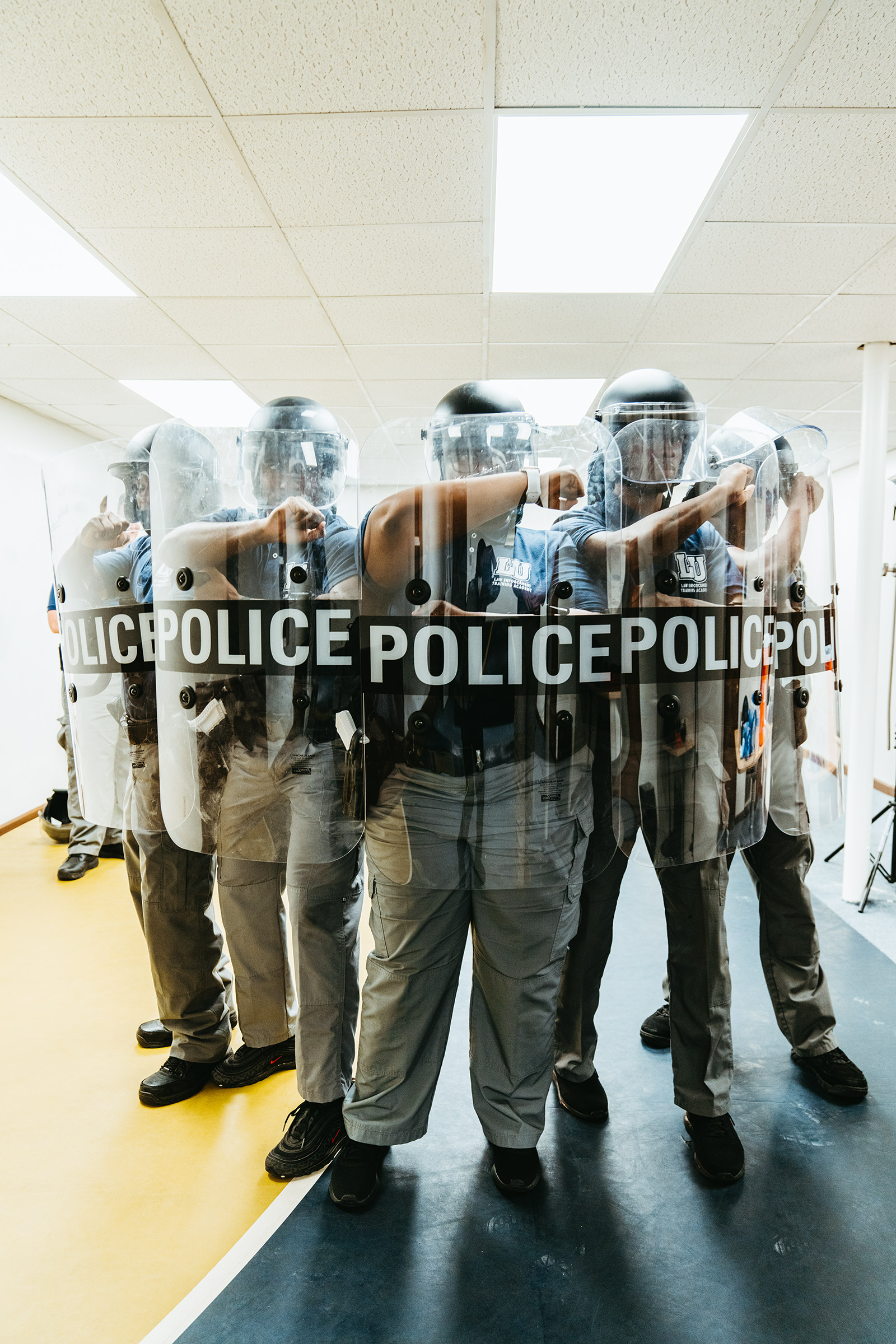
Harris’ department, which serves some 86,000 people, saw a 75% drop in applications from July to December 2020 and had six officers retire or walk off the 50-member force last year. Of the 37 applicants that year, only one was Black, according to the chief. “If we can’t keep up, it’ll be a burden and a significant problem,” says Harris, who worries he’ll have to reassign community outreach officers to fill patrol shifts.
In Aurora, Colo., where 23-year-old Elijah McClain died after police held the unarmed Black man in a chokehold, at least 87 people resigned, retired or were fired from the police department in 2020, compared with 54 the year before, according to the agency. Twenty more employees left the force in the first 40 days of 2021 alone—nearing the number of exits for all of 2015—just as the city is experiencing a significant increase in major violent crimes, including assaults and robberies.
“There’s no pretty picture down the road,” says Los Angeles County sheriff Alex Villanueva. The sheriff says homicides and assaults are “going through the roof” but that his agency is “probably the most understaffed” in the nation, with less than one deputy for every 1,000 residents. “It’s pretty grim,” Villanueva says.
From 2013 to 2016, the number of full-time sworn officers in the U.S. dropped from roughly 725,000 to 701,000, according to the BJS. About 63% of police leaders surveyed by the Police Executive Research Forum (PERF) in 2019 reported a decrease in the number of people applying for police officer positions over the past five years. In that time frame, 41% said their officer shortage has worsened. Job applications have plummeted about 50% in Seattle and 70% in Jefferson County, Colo., the PERF survey found.
All that was before Floyd’s death put police at the center of the largest sustained social-justice mobilization in modern U.S. history. The sense of crisis was compounded by the Capitol breach. At least 39 members of U.S. law-enforcement agencies from 17 states were found to have attended the rally, according to the news and analysis site The Appeal. One of them was reportedly a top recruiter for the Kentucky state police. Among the Capitol Police, at least six officers have been suspended with pay, and 29 others are being investigated for their actions, officials said.
Read more: Accusations of Bias, Racism Swirl Around Capitol Police After Mob Attack
Small wonder, then, that police work carries a stigma among some Black Americans. According to a 2018 survey by the University Southern Mississippi of more than 770 U.S. criminal-justice students, 28% of Black respondents said their family and friends would not approve of their becoming a patrol officer. Police chiefs say cultural perceptions and family objections are major obstacles that prevent recruits of color from applying. And though law enforcement is one of the few remaining portals to the middle class that does not require a college degree, the thousands of dollars charged by some police academies can be an obstacle, especially with no guarantee of a job.
Davis was fortunate to gain support from his family when he applied to Lincoln, but their warnings are in the back of his mind. “My mom always tells me, ‘You’re entering a Caucasian world,’ and she just wants me to be careful,” he says.
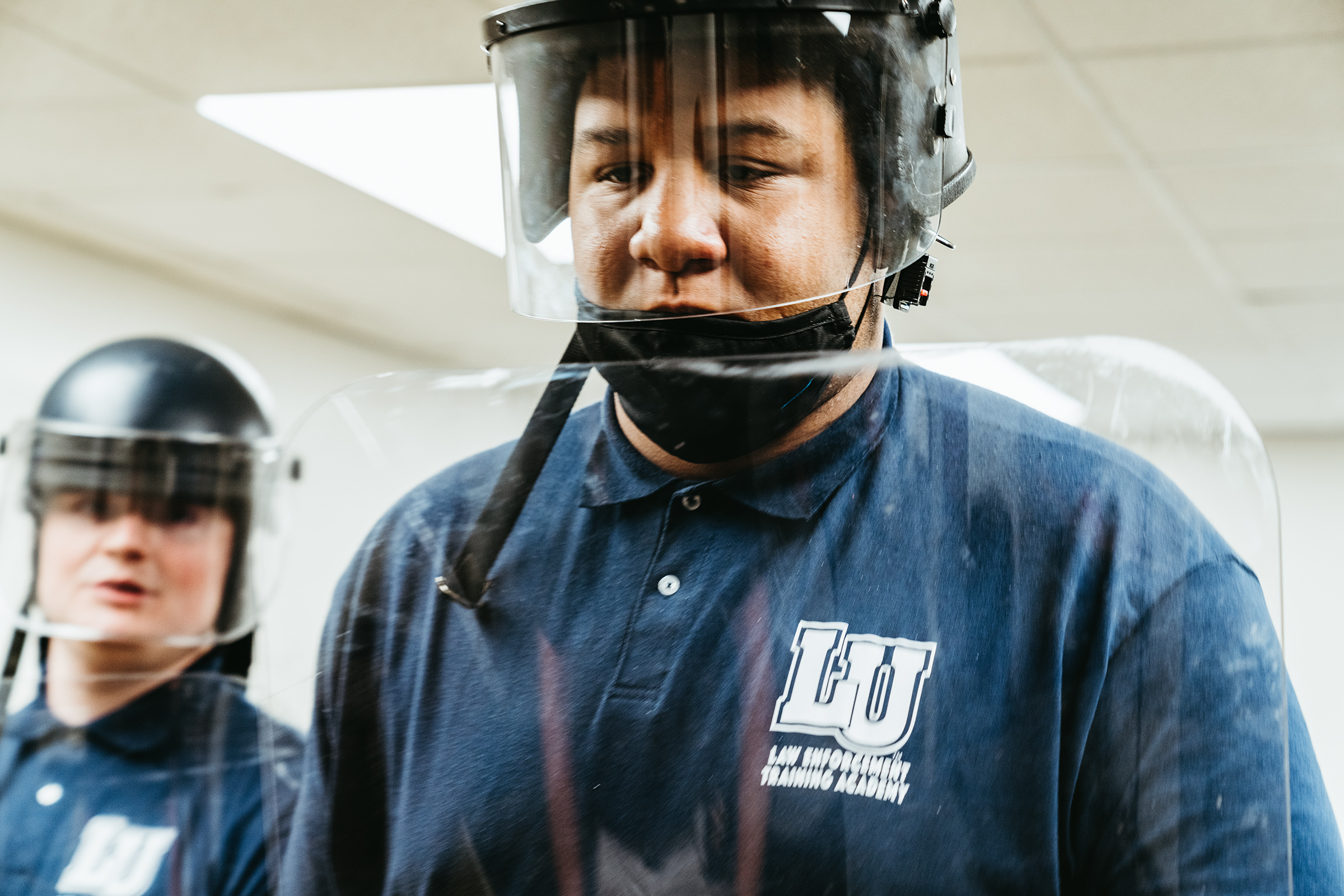
I want them to realize that I'm going to make a change. That's what we need right now.
Davis is one of eight Black students in the academy’s inaugural class of 11 students, which also includes two Black women. One of the white students is Christopher Cade, a 37-year-old state parole officer who signed up for the $6,000 course after seeing so many demoralized cops leaving the profession. “No one wants to do the job anymore,” he says. It made the military veteran want to fill their shoes. “I enjoy doing the right thing when nobody’s looking,” Cade says. “Not many people are willing to do that.”
Lincoln University police chief Gary Hill hoped to attract students with that mentality and drive when he dreamed up the academy about three years ago while working at the Cole County sheriff’s department in Jefferson City. There, he came across interns from Lincoln University, his alma mater, who were eager to find an inclusive local place to learn about policing. “I thought, Lincoln has the resources, it has the students, the facilities. It would just be a great idea,” says Hill, who left the sheriff’s department to lead Lincoln’s police force in 2016.
Drawing people to a hard but ‘very noble profession’
During the pandemic, nearly 75% of law-enforcement agencies altered recruitment and hiring practices, including canceling or adjusting polygraphs and physical-fitness assessments, according to a separate PERF survey of more than 140 agencies. In some cases, the changes succeeded in drawing applications. The Naperville police department in Illinois, which eliminated its $45 application fee in order to appeal to low-income recruits, saw applications double at the peak of protests over Floyd’s death. More than 850 hopefuls applied to join the force throughout the summer, according to Naperville police chief Robert Marshall. Of the 455 applicants who moved on to take a written exam, 34 were Black men and women, more than double the number in the previous round of recruits in 2018. Jason Arres, the department’s deputy chief, believes the applicants felt a “call to action,” similar to what prompted him to leave his corporate career to become a police officer six days after the terrorist attacks on Sept. 11, 2001. “It’s still a very noble profession,” Arres says.
But unlike Naperville’s, the overwhelming majority of agencies are struggling as more cops, hired during departmental expansions in the 1980s and ’90s, reach retirement age. Traditional sources of new recruits, including the military and family members of current officers, are no longer filling the gap. And today’s applicants, police chiefs say, are less inclined to work holidays, weekends and nights or commit to a job that’s getting harder and more dangerous. “They want to live normally,” says Benjamin Bliven, the police chief in Wausau, Wis. “We’re human beings.”
Police work is hard. Officers spend a great deal of their day dealing with social problems, including homelessness, mental illness and substance abuse. In tense encounters, their every move is recorded by body cameras or bystanders’ phones. In 2020, more than 260 law-enforcement officers died in the line of duty, a 96% increase over 2019 and the most killed since 1974, according to the National Law Enforcement Officers Memorial Fund. More than half those deaths were caused by COVID-19.
In 2019, the FBI says 89 officers were killed on duty, including 48 who were gunned down or run over while making arrests, responding to disturbance calls or conducting investigations and traffic stops. There were more than 170 law enforcement suicides in the U.S. in 2020, and more than 230 the year before, according to Blue H.E.L.P., a nonprofit which works to help officers struggling with PTSD, depression and other mental health issues.
“It takes a special person at this point to say, ‘Yeah, I want to do that,’” says Connecticut’s Stonington police chief, J. Darren Stewart.
As a child, Ti’Aja Fairlee knew she wanted to become a police officer. She was drawn to reading crime and mystery books and was fixated on police cars, even though she had mostly negative interactions with law enforcement growing up in East St. Louis, Ill. Her father had multiple run-ins with police, who beat him, Fairlee says, and the officers who lived near her were “rude.”
When Fairlee joined Lincoln University’s police academy, some of her family members called her a “traitor,” as did strangers on the street who saw her in her academy uniform. For a moment, the 20-year-old says, “I felt like I’m betraying my dad.” But Fairlee thinks about the constant injustices that communities of color face daily and how she has never met a police officer who is both Black and a woman. As the Black Lives Matter movement exploded last year, she knew the profession needed more people who looked like her. “It kind of pushed me to do better,” she says.
In my eyes, I don't think all officers are the same. I want to change that stigma.
It’s a sentiment shared overwhelmingly among students in Lincoln’s first police academy. In 2014, when Davion Waters was a high school freshman, police detained him, mistaking him for a robbery suspect in his first bad encounter with police. Waters says he was walking home from the library in St. Louis when two police officers pulled up in a patrol car, immediately handcuffed him and made him sit on the curb until they confirmed they indeed had the wrong person. Waters, 13 at the time, says he was “shaken up” by the incident. Later that year, he started an internship with the same police department that detained him.
“It’s about changing the whole culture,” says Waters, now 22. “In my eyes, I don’t think all officers are the same. I want to change that stigma.”
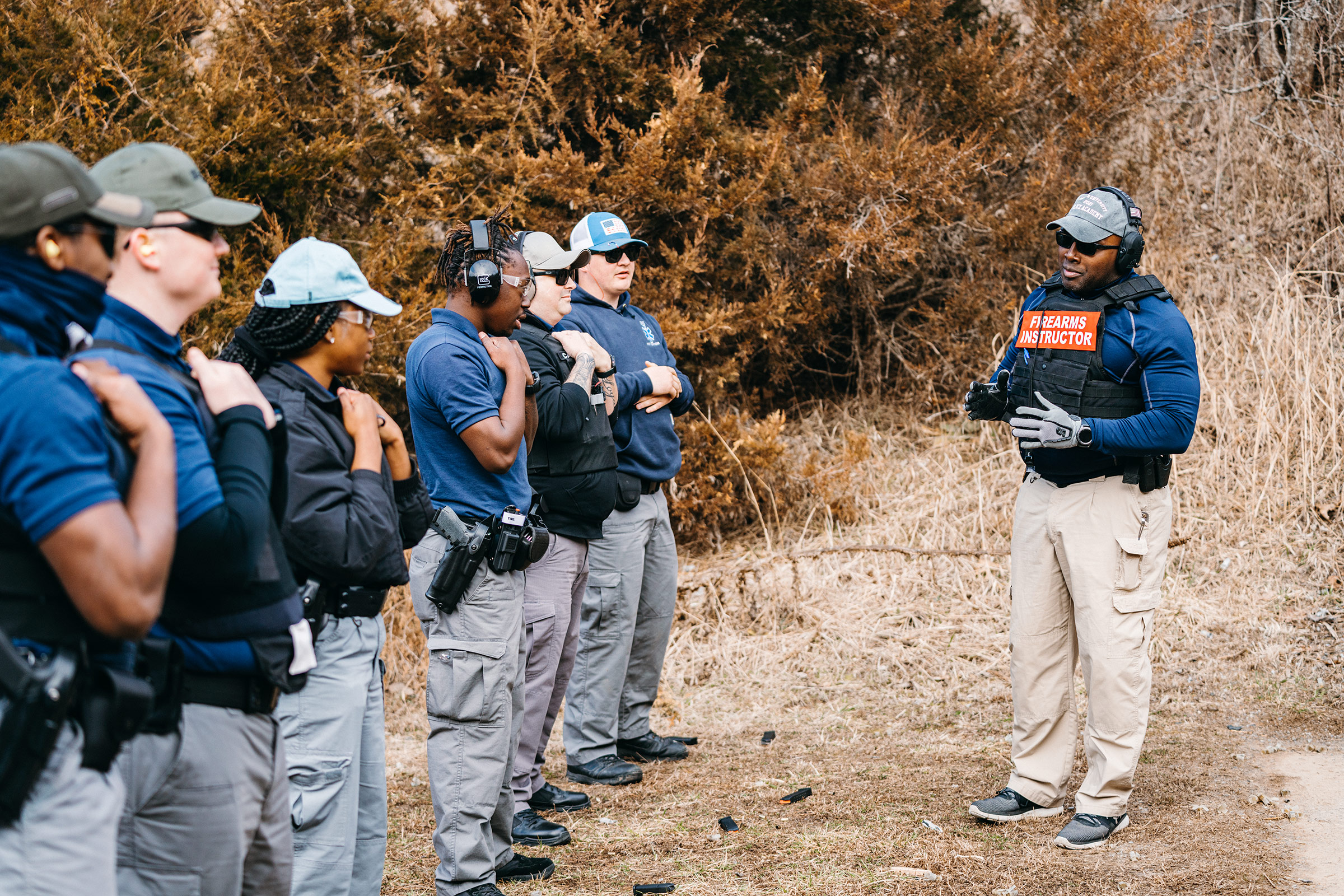
Learning New Methods
In 2018, when Hill pitched the idea for a police academy to Lincoln University’s new president, Jerald Jones Woolfolk, she greenlighted it on the spot. Hill then went to work securing necessary state approvals and support from local leaders. When it was time to recruit students in the middle of 2020, Hill worried that societal upheaval might deter them from enrolling. The opposite happened. With just word-of-mouth advertising and some flyers, 27 students applied. Fourteen were not admitted because of financial and background-check issues, and two dropped out in January for personal reasons, Hill says.
The program runs 22 weeks, on evenings and Saturdays. Students learn how to shoot a firearm and when to use force, as well as how to respond to domestic-violence and child-abuse calls and how to deal with death encountered on the job. Hill says the academy steers away from the military-style teaching methods that traditional police academies have been criticized for using. He says a chunk of the curriculum focuses on de-escalation strategies and that he has personally vetted the instructors, who are all local law-enforcement officers.
They need African American cops. I'm hopeful I'll be offered at least three jobs.
Recently, the students picked apart a seven-minute video of a police officer in McKinney, Texas, pushing a bikini-clad Black teenage girl to the ground at a pool party and kneeling on her back to restrain her. It’s one of many now notorious police-force incidents that the class studies. When Lincoln’s seniors graduate from the academy on June 24 and pass the required state exam for a license, Hill says they’ll have a leg up on other competitors because of their college education, academy training and lived experiences.
“They need African-American cops,” says India Stelzer, a 21-year-old academy cadet from Hayti, Mo. “I’m hopeful I’ll be offered at least three jobs.”
Hill hopes many of the roughly 100 other HBCUs across the nation will soon follow suit. However, many can’t because of state laws that prohibit independent police academies from existing outside of official law-enforcement agencies; Washington State, for example, requires police recruits to go through its state-run Basic Law Enforcement Academy. So far, Hill says he’s working to open a branch of Lincoln’s police academy at Harris-Stowe State University, an HBCU in St. Louis. And following a 2020 executive order for racial equity in criminal justice, North Carolina’s department of public safety established a paid internship program for HBCU students interested in going into law enforcement. In December, nine students from HBCUs throughout North Carolina completed the 12-week program, and an additional eight began a new internship rotation this February.
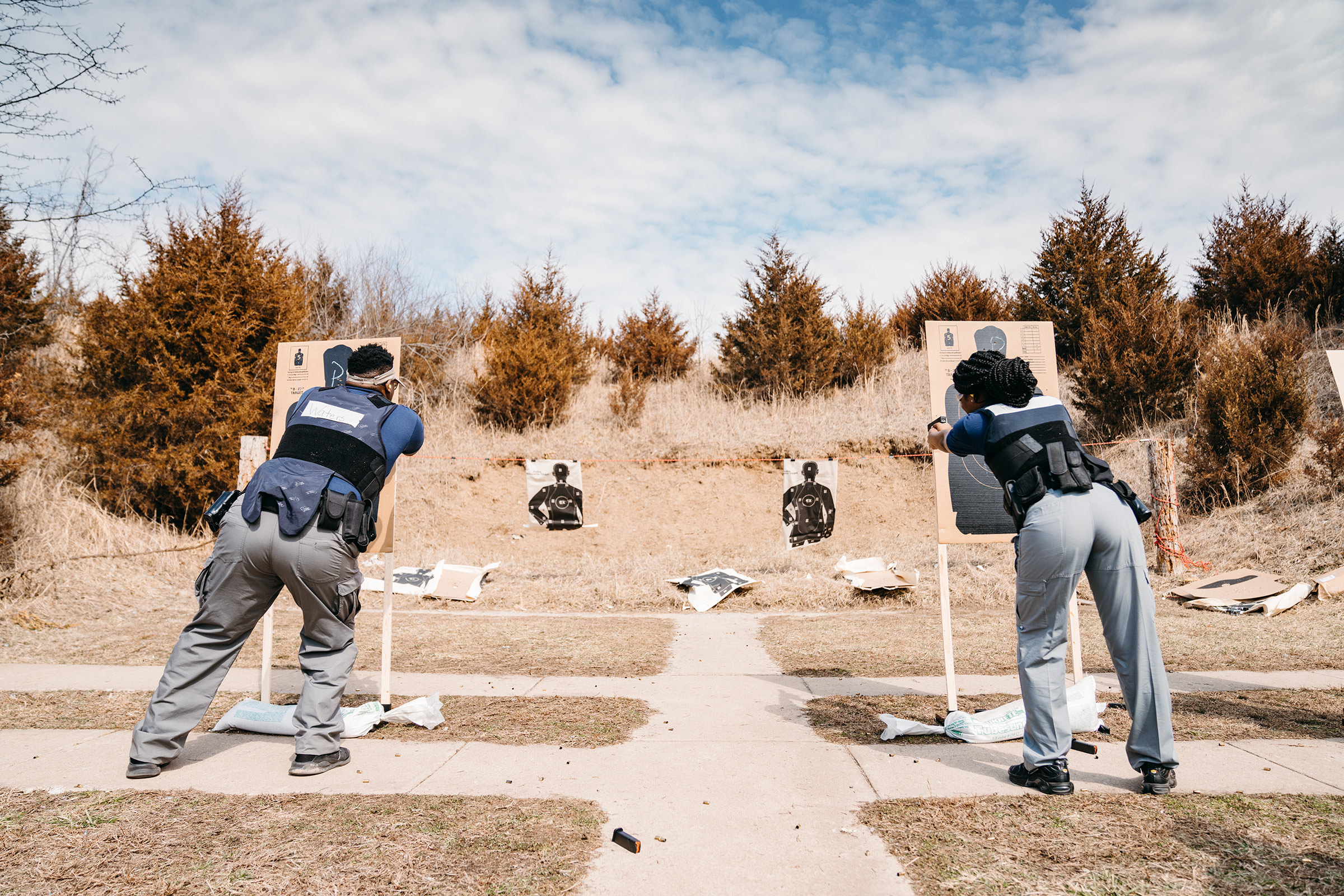
It takes a special person at this point to say, 'Yeah, I want to do that.'
“We’re forming a greater relationship with those HBCUs, because now we have more of a presence and they know who we are,” says recruitment manager Dan Hill, who oversees North Carolina’s program. “They can see that we are a viable career opportunity for their students.”
Still, without changes in the way communities of color view police, some of Lincoln’s students worry about their chances for success. Stelzer, who has four relatives in law enforcement, is concerned about being the only Black officer in her department and facing racism in and out of work. “It’s honestly scary,” she says. Fairlee is fully expecting this, saying that if she enters the field with that mindset, “it won’t hurt as much” when it happens.
Since he stopped keeping his career goals a secret, Tyrese Davis hasn’t received as much negativity from his friends as he thought he would. Half of the reactions have been supportive, and he’s relieved the other half have just been ambivalent. “I didn’t really have to be ashamed of it anymore,” he says.
Read more: America’s Policing System is Broken. It’s Time to Radically Rethink Public Safety
He knows the road ahead will not be easy. Davis, who grew up in a predominantly Black neighborhood in Baltimore, says he experienced racism for the first time only in 2017 after he left to attend college in predominantly white Garden City, Kans. There, he says, he was followed to the checkout line while shopping at Walmart and has been pulled over by police for allegedly playing music too loud in his car. “It was really a shocker,” he says. The experiences left Davis feeling less than human and uncomfortable in his skin.
After the events of 2020, he says, he debated whether he still wanted to enter law enforcement, but Floyd’s death was the “gasoline to my flame.” He thinks about all he’s accomplished already. Most of his high school friends didn’t go to college, but in May, Davis is set to graduate from Lincoln, where he’s made the dean’s list multiple times and plays offensive tackle for the school football team on a scholarship.
“I broke that recurring cycle,” he says. “One young Black man can empower many other ones.”
More Must-Reads from TIME
- Cybersecurity Experts Are Sounding the Alarm on DOGE
- Meet the 2025 Women of the Year
- The Harsh Truth About Disability Inclusion
- Why Do More Young Adults Have Cancer?
- Colman Domingo Leads With Radical Love
- How to Get Better at Doing Things Alone
- Michelle Zauner Stares Down the Darkness
Contact us at letters@time.com
